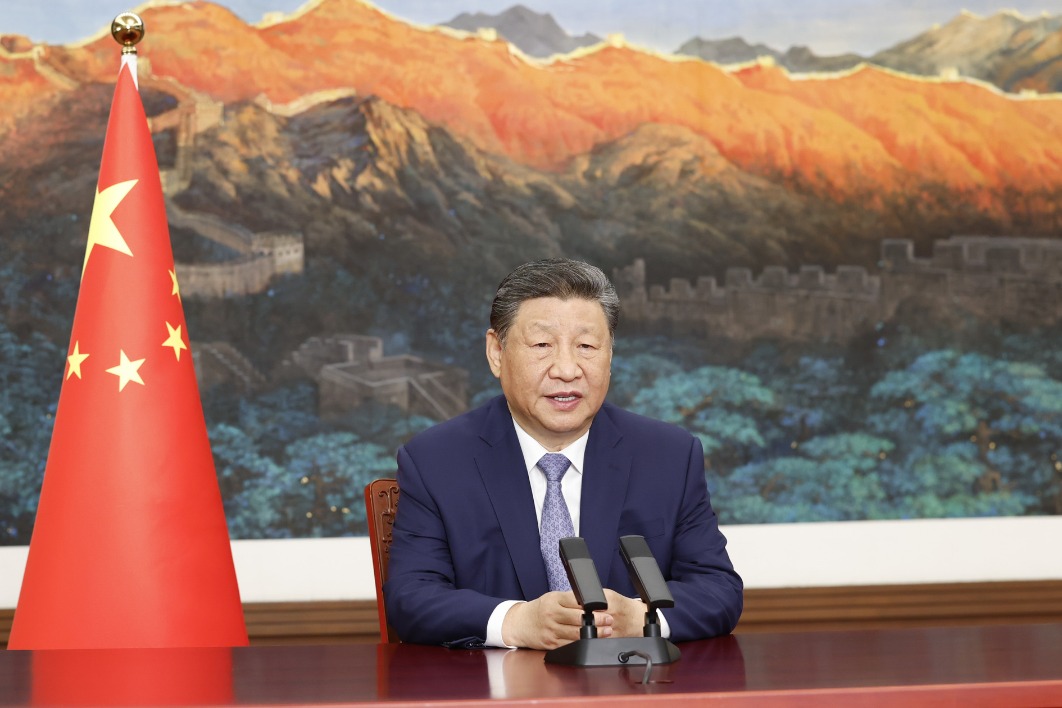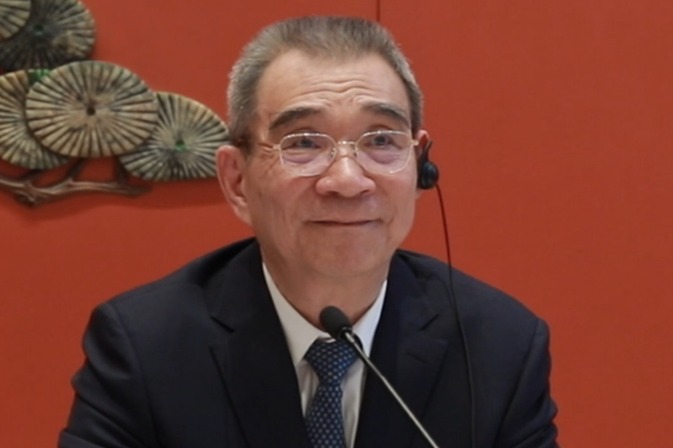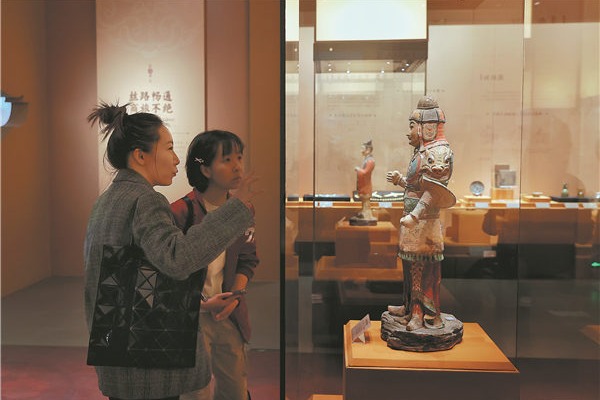China-ROK ties resilient despite odds


This year marks the 30th anniversary of the establishment of diplomatic relations between China and the Republic of Korea. In the past three decades, the two countries have advanced bilateral ties to strategic and cooperative partnership. They have not only enhanced economic cooperation but also maintained good neighborly relations despite external interferences and intermittent disputes.
True to a Chinese saying, China-ROK relations are steadfast at 30. Yet the two countries need to use their bilateral achievements to deepen cooperation and resolve bilateral issues in order to take their relationship to higher levels in the next decades.
Over the past three decades, the two countries' high-level cooperation and exchanges, especially in the economic field, have benefited the two peoples, with mutual investment exceeding $100 billion and bilateral trade crossing $300 billion.
According to a report by the China International Council for the Promotion of Multinational Corporations in 2021, ROK-headquartered multinational companies such as Samsung, Hyundai, SK Inc. and LG, made direct investments in industries including food, pharmaceuticals and logistics in China, and strengthened cooperation with Chinese enterprises.
Besides, Beijing and Seoul are likely to further deepen cooperation under the frameworks of China-ROK free trade agreement and the Regional Comprehensive Economic Partnership, the world's largest free trade agreement which came into effect on Jan 1 and is aimed at removing the tariff barriers among member countries.
Also, the strong increase in trade and investment among the RCEP member states, including the 10 ASEAN members, is expected to strengthen cooperation among China, Japan and the ROK. The RCEP is also likely to offset the impact of China-US trade disputes and help stabilize the global supply chains. Specifically, the collaboration among China, Japan and the ROK will play key roles in the high-quality development of the RCEP.
According to a report issued by Korea Institute for International Economic Policy in 2021, materials, parts and equipment manufacturing industries in China, Japan and the ROK have grown significantly and brought about major changes in the global value chains over the past 20 years. The East Asian parts of global value chains are expected to further improve, and it is difficult to create alternatives for these parts for the time being in spite of the three countries' diplomatic disputes, the China-US tensions and the impacts of the COVID-19 pandemic.
The economies of China, Japan and the ROK are interdependent and so is their technological development. And their current supply chains will have a huge impact on the RCEP members' cooperation and the stability of added-value chains in Southeast Asia, and other emerging economies.
China's exports surged 29.9 percent and imports 30.1 percent despite the pandemic in 2021, indicating the stability of the Chinese economy and supply chains. The Chinese and ROK governments, as well as both countries' industries, need to deepen cooperation, so as to ensure the sustainable development of the supply chains, not least because stable global supply chains are vital to the growth of enterprises around the world.
To better deal with external challenges, they should shift from the existing cost- and quality-based supply chain management to stability-oriented management.
From this perspective, Chinese and ROK enterprises should attach greater importance to the RCEP agreement, particularly because it has the potential to help member countries strengthen regional cooperation and ensure the stability of the supply chains. As such, Chinese and ROK enterprises should cooperate to expand their markets in Southeast Asia, South Asia, the Middle East, and South America, which among other things will also contribute to global economic recovery and strengthen the multilateral trading system.
Apart from trade and investment, China and the ROK have also boosted people-to-people exchanges during the past 30 years. Before the pandemic broke out, two-way passenger trips between the two countries had reached 10 million. The two peoples have deepened mutual understanding despite their different political systems, thanks to the common elements in their histories, cultures and life philosophy. No wonder more and more students are choosing to study in each other's country, thereby enhancing communication between youths.
The governments and people in both countries have also helped each other to contain COVID-19 pandemic, and keep their economic activities and supply chains running. And despite the cancellation though of many programs of the "2021-22 China-ROK Year of Cultural Exchanges" due to the pandemic, cultural exchanges between the two countries are likely to undergo qualitative changes in the post-pandemic era.
Since China, Japan, the ROK and the members of the Association of Southeast Asian Nations are neighbors, in case of a political dispute between two or more sides or any external interference in a country, the others cannot remain mute spectators. Therefore, Beijing and Seoul need to enhance sustainable strategic communication and trade cooperation, in order to strengthen mutual understanding and forge ahead together.
Trade protectionism and unilateralism pose a grave challenge to economic globalization and existing cultures, but since Chinese and Korean cultures have a lot in common, the two sides should cooperate to preserve cultural values of the region and ensure their sustainable development, rather than being influenced by the US-led West.
China-ROK diplomatic ties and trade partnership have benefited people in both countries, and, hopefully, their relationship in the next decades will boost sustainable and peaceful development in the region.
The author is a guest professor at the International Business School, Beijing Foreign Studies University. The views don't necessarily reflect those of China Daily.
If you have a specific expertise, or would like to share your thought about our stories, then send us your writings at [email protected], and [email protected].


































